 Color & Learn
Color & Learn

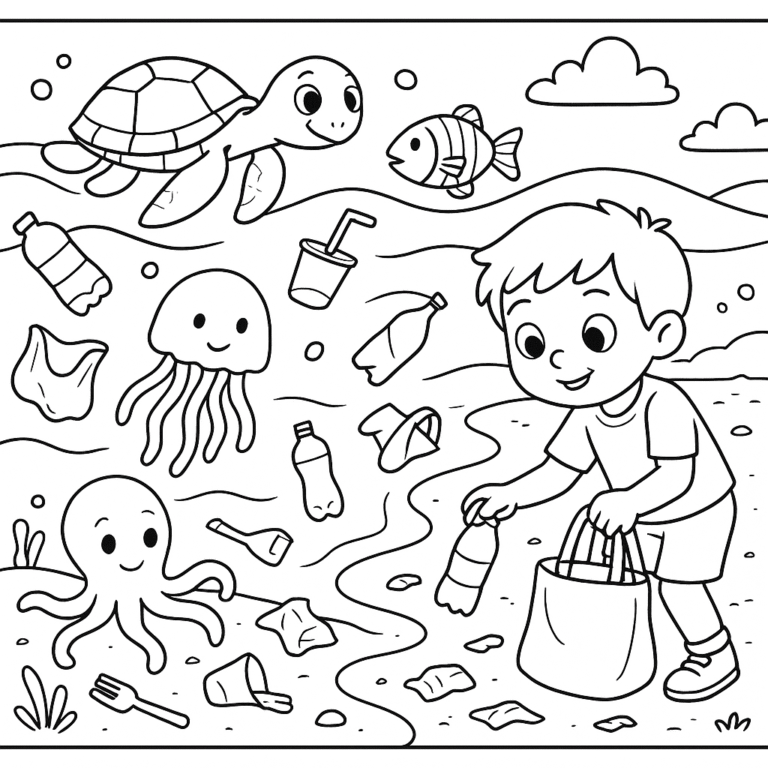
 Featured: The Plastic Pollution Chapter
Featured: The Plastic Pollution Chapter
Did You Know?
Every month, the average person might unknowingly swallow up to 20 grams of microplastics — that’s like eating a credit card!
Short Story:
John loved his plastic straw collection. He used plastic bottles, wrapped snacks in cling film, and brushed with plastic tools every day. But one day, he started feeling tired and sick. At the doctor, tests showed tiny plastic pieces in his blood. The doctor smiled gently and said, “John, plastic isn’t just hurting the planet. It’s hurting you too.” From that day, John switched to reusable bottles and bamboo brushes. He felt better, lighter, and even happier.
The Problem:
Plastic stays on Earth for hundreds of years. It harms sea animals and pollutes our land.
Geography Fact:
All oceans now have plastic patches floating like islands!
Cultural Tip:
In Japan, people wrap gifts and goods in furoshiki cloths instead of plastic bags.
Sustainability Action:
Use bamboo straws, cloth bags, and reusable containers.
Your Mission (Homework):
Ask your family to avoid plastic bags for one full week. Use cloth ones instead!
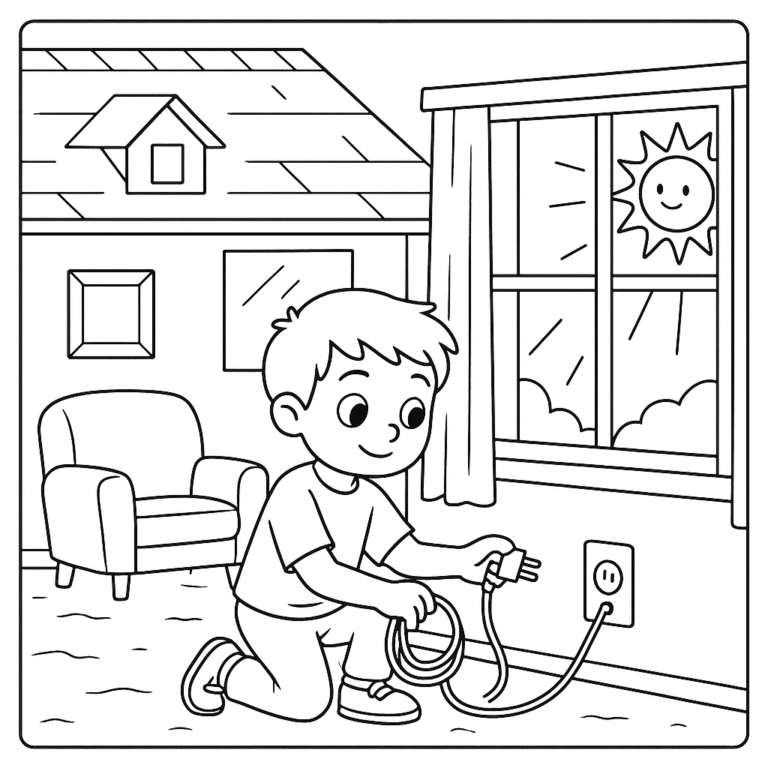
Electricity Waste
Did You Know?
Leaving lights on overnight in one house could waste enough energy to run a fridge for 24 hours.
Short Story:
Layla never cared much about switches. Lights stayed on, the TV played while she slept, and her chargers were always plugged. One day, the power went out in her neighborhood. It was hot and dark. Layla lit a candle and thought about all the energy she had wasted. When power returned, she made a new rule: “Switch off to switch on the planet!”
The Problem:
Unplugged chargers and lights left on waste power and pollute the air through fuel burning.
Geography Fact:
The Sahara Desert receives more sun in one day than the UK gets all year.
Cultural Tip:
In India, many dry clothes using sunshine instead of dryers.
Sustainability Action:
Unplug, switch off, and use sunlight when you can.
Your Mission (Homework):
Create a sign near your room’s light switch that says “Turn Me Off!”
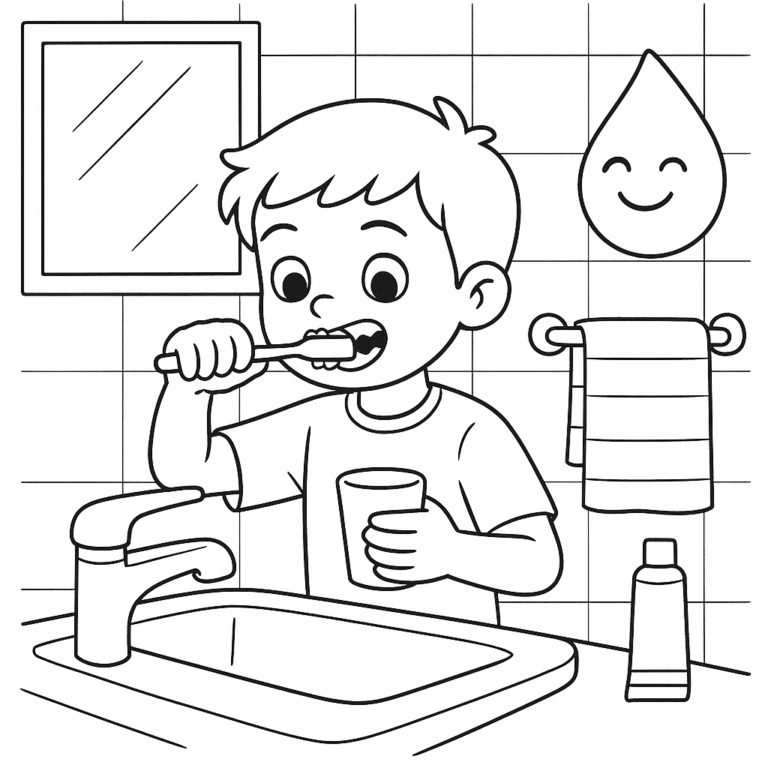
Water Waste
Did You Know?
One dripping tap can waste over 3,000 liters of water a year!
Short Story:
Omar liked to leave the tap running while brushing. “It sounds nice,” he said. But during a school trip to a village, he saw children walking for hours to collect water. Omar was shocked. That night, he closed the tap while brushing and told his family, “Water is gold. Don’t let it slip away.”
The Problem:
We waste clean water every day — brushing, washing, and sprinkling more than needed.
Geography Fact:
Only 3% of all water on Earth is fresh water we can drink.
Cultural Tip:
In Africa, families reuse rainwater for cooking and washing.
Sustainability Action:
Take 5-minute showers. Turn off taps when not in use.
Your Mission (Homework):
Time your next shower. Can you beat 5 minutes?
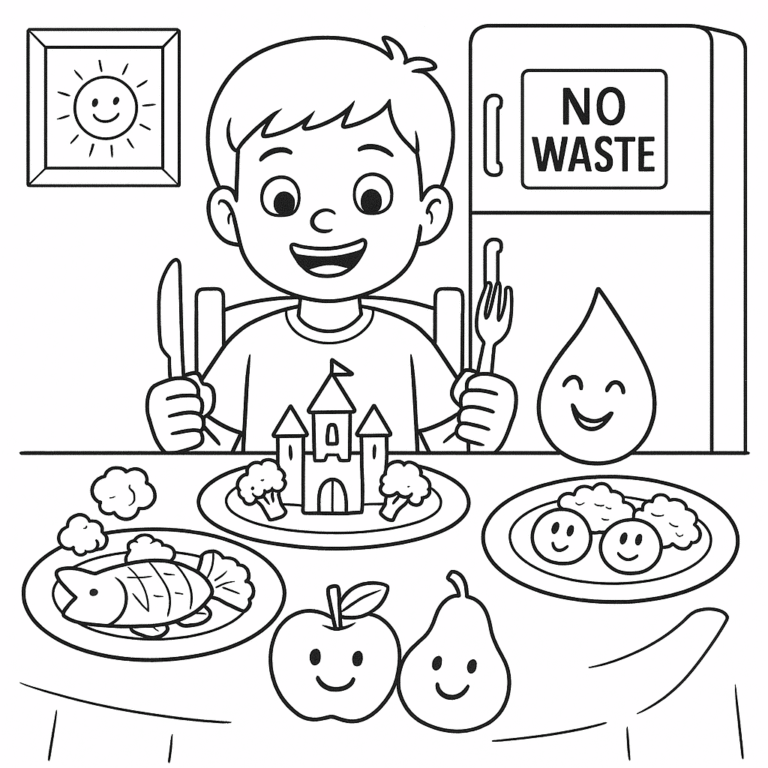
Food Waste
Did You Know?
One-third of all food produced is wasted. That could feed 2 billion people!
Short Story:
Sophie didn’t like leftovers. One bite and she was done. Her grandma sat her down and said, “Each grain of rice took water, land, and care. Respect it.” Sophie started helping in the kitchen, and created her own recipe: “Leftover Pizza Surprise!” Now, she eats what she takes and even teaches friends.
The Problem:
Food waste causes hunger and wastes the water, fuel, and land used to grow it.
Geography Fact:
Globally, food waste creates more pollution than all airplanes combined!
Cultural Tip:
In Arab cultures, wasting food is seen as disrespectful.
Sustainability Action:
Take only what you’ll finish. Reuse leftovers.
Your Mission (Homework):
Help cook a “zero waste meal” using leftovers.
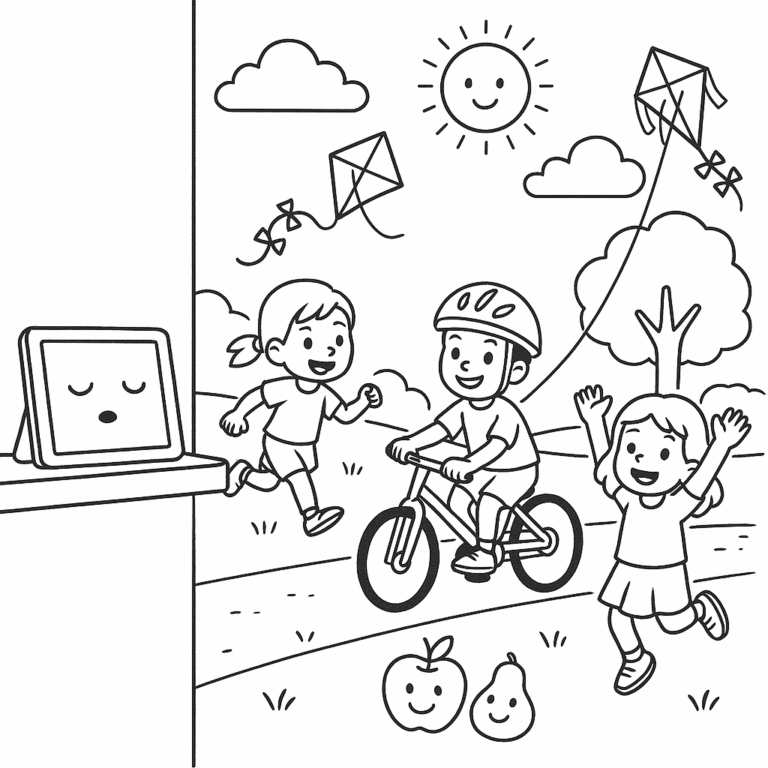
Protect your eyes from screen
Did You Know?
The average child spends over 7 hours a day in front of screens!
Short Story:
Yusuf loved games. He played day and night. One day, he forgot to charge his tablet. Forced to go outside, he found a butterfly. Then a bird. Then made a new friend at the park! “I didn’t know nature had so many levels!” he laughed. Now, screens come after sunlight.
The Problem:
Screens use energy and keep us indoors when we could explore the world.
Geography Fact:
Forests clean our air, but fewer kids explore them today than ever before.
Cultural Tip:
In Nordic countries, kids play outdoors in all weather!
Sustainability Action:
Choose one hour a day screen-free for nature time.
Your Mission (Homework):
Go for a walk or play outside for 15+ minutes.
Want More? Let Us Know!
Leave a review, share your child’s colored version, or request a special coloring topic.
